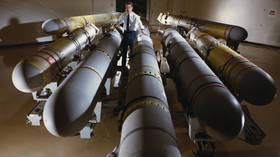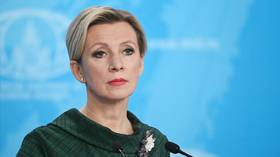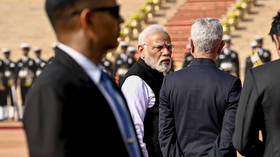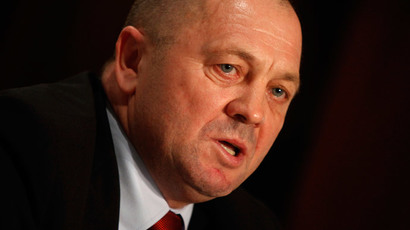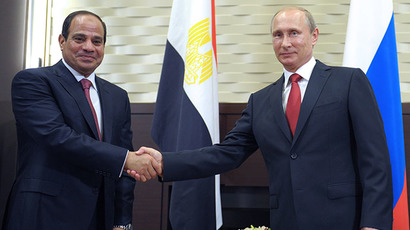EU denies bullying Russia's trade partners over food ban
The EU is not working to thwart Russian trade with Latin America and elsewhere in the world, EU spokesman Peter Stano tells RT.
Russia is seeking out new suppliers to fill the substantial gap left after it banned food imports from the EU, US, Australia, Canada, and Norway. However, the EU is reportedly trying to interfere and persuade other countries not to gain from the EU’s misfortune.
The Financial Times reported the EU is allegedly working to try and convince Brazil, Chile, and other Latin American countries not to meet Russia's demand for agricultural products.
READ MORE: EU to urge Latin America not to export food to Russia
“The EU is now assessing the impact of Russia’s announcement on EU products. And we are of course in contact with other countries, countries that could become potential suppliers for goods that Russia has banned from its market from EU producers,” spokesperson Peter Stano told RT in an interview.
EU countries could be left with a large amount of produce they aren’t able to sell. Russia imports roughly 30 percent of its food supply from Europe, so the sudden halt could be a big blow to the 28-nation bloc.
The EU denies they are putting pressure on third parties.
“We are not pressuring anyone- this is not the nature in which the EU does policy,” Stano told RT.
Instead, Stano said the EU is explaining its side of the story, and that Russia shouldn’t be seen as a legitimate player, since sanctions are politically motivated.
“We are explaining our view [to partners, Ed.] that it’s not beneficial for them to benefit from the current circumstances," Stano said.
Some European producers are asking Brussels for compensation after the sanctions are lifted, but the EU hasn’t yet calculated the full affect of the Russian food ban.
“We are willing to take whatever measures necessary to help our producers,” Stano said, adding that the European Commission is “still assessing the situation.”
On Thursday, the European Commission will meet with member states in Brussels to discuss agriculture and trade.
In August the Kremlin restricted imports of meat, cheese, dairy, fruit and vegetables from the US, EU, Canada, Australia, and Norway in response to Western sanctions aimed at hurting the Russian economy.
Whether the EU’s lobby will work remains to be seen, but so far, Russia has reportedly reached deals with a number of trading partners.
Ecuador has come out and said it will not be persuaded, and will decide for itself who it does trade with. Turkey, Russia's 5th largest food supplier, also says it is excited by the opportunity to do more business with Moscow in lieu of the EU and US products.
Russia also held talks on creating a free trade zone with Egypt, and countries in East Africa have said they are ready to triple or quadruple trade with Russia.
"African suppliers have declared their readiness to supply Russia with up to 100,000 tons of fruit and vegetables per week, products that before were re-exported to Russia via the European Union,” Elena Nagornaya, president of the Russia-Africa trade alliance, told ITAR-TASS.
African countries are ready to directly export pineapples, bananas, citrus fruits, apples, nuts, avocados, strawberries, as well as ginger to Russia. Negotiations are underway with major Russian grocery chains.







